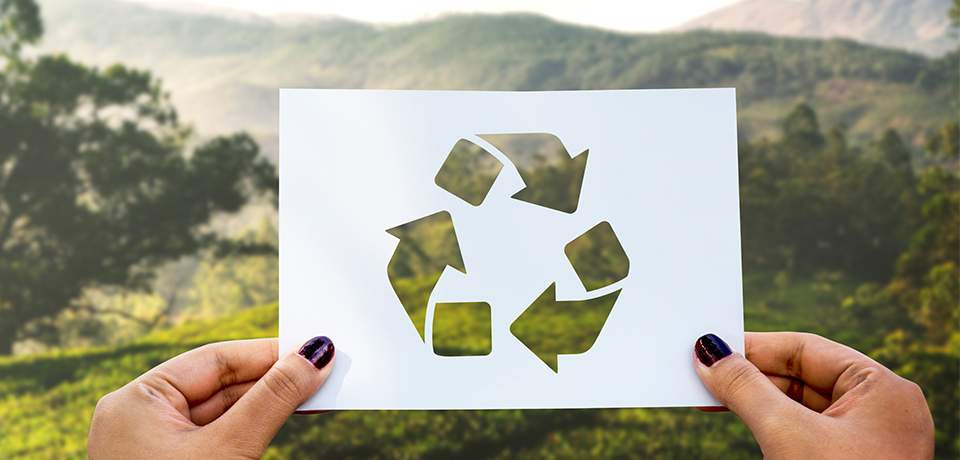Sıfır Atık Yaşama Neden İhtiyacımız Var?
- Anasayfa
- Blog
- Yenilenebilir Enerji
- Sıfır Atık Yaşama Neden İhtiyacımız Var?

Sıfır Atık; atık oluşumuna sebep olan etkenlerin değerlendirilerek, atık oluşumunu engellemek ve en aza indirmek amacıyla, kaynakların daha verimli kullanılması için hareket eden bir hedeftir. Atıkların geri dönüşüm süreci içerisinde değerlendirilmeden bertaraf edilmesi hem maddesel hem de enerji olarak ciddi kaynak kayıpları yaşanmasına neden olmaktadır.
Dünya nüfusunun artmasıyla, üretim ve tüketim faaliyetleri yüzünden oluşan atıkların kontrol altına alınması bir zorunluluk haline geldi. İnsan faaliyetleri sonucunda oluşan atıklar, çevre kirliliği ve insan sağlığında olumsuz etkilere neden olmaktadır. Gün geçtikçe bilinçli ve sürdürülebilir tüketim de daha çok önem kazanmaktadır. Çevre kirliliğinin azaltılması ve insan sağlığına zarar verecek maddelerin doğaya ulaşmadan kontrol altına alınması amacıyla yapılan sıfır atık projeleri her geçen gün artıyor. Atıkların geri dönüşüm ve geri kazanım sürecinden geçirilmesi, enerji ve doğal kaynaklardan daha çok tasarruf edilmesini sağlayabilir.
Sıfır Atık Nedir?
Sıfır atık, insan faaliyetleri sonucunda oluşan atıkların önlenmesine odaklanan ve ürünlerin tekrar kullanımlarını teşvik etmeyi amaçlayan bir dizi ilkeden oluşur. Sıfır atık yaklaşımında, bir malzemenin kullanılabileceği son sınıra kadar geri dönüştürülmesi ve tekrar kullanılması amaçlanır. Sıfır atık anlayışı, atıkların tamamen yok edilmesi anlamını taşımaz. Ürünlerden mümkün olduğunca az atık üretilmesini ve geri dönüşümle mümkün olan en çok sayıda, tekrar kullanılmasını amaçlar.
Sıfır atık ilkelerini uygulayarak atıksız bir dünyayı hedefleyen ve bu amaçla kıtalararası takımlar oluşturan Sıfır Atık Uluslararası İttifakı (ZWIA) tarafından yapılan tanımlama ise şu şekildedir:
“Tüm ürün, ambalaj ve malzemelerin sorumlu bir şekilde üretilmesi, tüketilmesi, yeniden kullanılması ve geri kazanılması yoluyla tüm kaynakların yakılmadan, çevreye veya insan sağlığını tehdit eden toprağa, suya veya havaya deşarj edilmeden korunmasıdır.”
Sıfır Atıkla İlgili Çevre Bilinci Nasıl Kazanılabilir?
Doğal kaynakların bilinçsiz ve sorumsuzca israfı yüzünden, doğanın binlerce yıldır süregelen dengesi bozulmaya başladı. İnsanların tüketim odaklı yaşam tarzı, doğal kaynakların azalması, küresel ısınma ve çevre kirliliği gibi sorunları gündeme getirdi. Sıfır atık prensibi ile atıkların geri dönüşümü planlanabilir. Geri dönüştürülen ürünler sayesinde hammadde ihtiyacında da büyük oranda azalmalar görülecektir. Geri dönüştürülebilir atık türleri; ahşap, pil, yağ, cam, elektronik, kağıt, kompozit, metal, organik, plastik, tekstil ve tıbbi atıklar olarak listelenebilir.
Türkiye’de, sıfır atık kapsamında devlet destekli yeni adımlar da atılmaktadır. Çevre Ve Şehircilik Bakanlığı Sıfır Atık Projesi ile, doğal kaynakların korunması ve verimli kullanımı sağlanabilir. Bakanlığın oluşturduğu sıfır atık yönetmeliği, hammadde ve kaynakların etkin kullanımı ile sürdürülebilir kalkınma programlarının oluşturulmasını amaçlar.
Çocuklara küçük yaşlardan itibaren verilen eğitimlerle, sıfır atık ve bilinçli tüketicilikle ilgili alışkanlıklar kazanması sağlanabilir. Çocuğun erken yaşta kazanacağı alışkanlıklarla, geri dönüşüm yaşamın doğal bir parçası haline gelebilir. Sıfır atık yaklaşımı için oluşturulan, 5D modeli ile tüketicilerin geri dönüşüme katılımını sağlayacak eğitim ve programlar yaygınlaştırılabilir.
Sıfır atık yaklaşımında, atıkların ayrıştırılması için farklı renkler belirlenmiştir. Doğru renkte kullanılan poşet ve atık kutularıyla, ayrıştırma işlemi daha kolay hale gelebilir. Atıkların ayrıştırılmasını kolaylaştıran bu renkler şu şekildedir.
-
Mavi: Kağıt atıklar
-
Sarı: Plastik atıklar
-
Yeşil: Cam atıklar
-
Gri: Metal atıklar
-
Kahverengi: Organik atıklar
-
Siyah: Geri dönüştürülemeyen atıklar
-
Beyaz: Yemek artıkları
-
Mor: Ekmek artıkları
Sıfır Atık Yaklaşımı ile Sağlanan Avantajlar Nelerdir?
Sıfır atık yaklaşımı, sadece günümüzde oluşan doğa ve atık problemleri ile ilgilenmeyi hedeflemez. Gelecek nesillerin doğal kaynaklardan faydalanması ve temiz bir doğaya sahip olması gibi konuları da içermektedir. Sıfır atık yaklaşımı, zor ve uğraşı isteyen bir düşünce gibi görünebilir ancak uygulaması oldukça kolaydır. Evlerde yapılacak basit ayrıştırmalar ile atıkların yeniden kullanılması, enerji ve malzemeden tasarruf edilmesi sağlanabilir. Sıfır atık yaklaşımının avantajları şu şekilde sıralanabilir.
-
Kaynakların daha verimliliğin kullanılması
-
Doğanın kirlenmesinin engellenmesi
-
Canlıların sağlığına zarar verebilecek risklerin azalması
-
Sera gazı salınımının azalması
-
Sürdürülebilir tüketim bilincinin kazandırılması
-
Enerjide tasarruf yapılması
-
Atık depolama alanlarının azalması
Sıfır Atık Anlayışının Dünya için Önemi Nedir?
Son yıllarda yapılan hızlı atılımlar ile daha iyi bir gelecek sağlamak için çeşitli çözümler üretildi ve üretilmeye devam ediyor. En etkili çözümlerden biri olan sıfır atık anlayışı da bu üretilen çözümlerden biridir. Bireysel olarak yapılabilen, oldukça etkili ve basit bir uygulamadır. Atıkların sebep olduğu kirlilik sadece bir bölge veya ülkeyi değil tüm dünyayı ilgilendiriyor. Yaşam alanlarında üretilen organik atıklar, doğada kendiliğinden çözünerek yok olabilir. Ancak, insan faaliyetleri sonucunda oluşan atıkların neredeyse tamamı doğada yüzlerce yıl kalabiliyor. Özellikle petrol ürünlerinden biri olan plastik, toprak ve suda kirliliğe sebep oluyor.
Ayrıştırılarak toplanan atıkların geri dönüştürülmeleri çevre için oldukça faydalıdır. Özellikle birden fazla dönüştürülebilen metal, cam ve kağıt gibi ürünler enerji ve hammadde tasarrufu sağlar. Evsel atık olan yağların toplanması için özel şirketler ve belediye gibi kurumlar hizmet vermektedir. Toplanan atık bitkisel yağlarla, biyoyakıt ve sabun gibi ürünler üretilebilir. Ürünlerin dönüştürülmesinde kullanılan enerji, yeni üretim yapılmasından çok daha düşüktür. Metal atıklarının geri dönüşümü ile çok yüksek oranda enerji tasarrufu sağlanabilir. Sıfır atık anlayışı, doğaya ulaşabilecek atık miktarını azaltabilir. Çevre kirliliği ve sağlık risklerinin azalması daha yaşanabilir bir dünya için çok önemlidir.
Sonuç Olarak
Son yıllarda oluşturulan birçok farkındalık programı ile doğal kaynakların sınırsız olmadığı ve giderek azaldığının önemi daha çok vurgulanıyor. Üretimdeki artışın kontrolsüz bir şekilde olması toprağa, suya ve havaya verilen hasarı büyük oranda çoğaltıyor. Üretim ve tüketim sonucunda oluşan atıkların dönüştürülmesi, doğal kaynakları koruyup çevreye olan etkilerini azaltabilir. Dünya genelinde devlet, kurum ve kişilerin destekleriyle hazırlanan sıfır atık projeleri gerekli bilincin oluşmasını büyük ölçüde katkı sağlayacaktır. Kurumların takip edebileceği bir atık yönetim planı olması tüketilen malzemelerde tasarruf edilmesine imkân sağlar. Sürdürülebilir sıfır atık yönetim sistemi ile enerji ve doğal kaynakların kullanımındaki azalma, ülke ekonomilerine de fayda sağlayacaktır.
Sıfır atık yaklaşımı benimsenip yaşamın normal akışı içerisinde işler hale getirilirse, gelecek nesiller için temiz ve yaşanabilir bir dünya bırakabiliriz.
 Yenilenebilir Enerji Üretimi ve Kullanımının Avantajları
Yenilenebilir Enerji Üretimi ve Kullanımının Avantajları  Karbon Ayak İzi Nedir? Dünya’ya Etkileri Nelerdir?
Karbon Ayak İzi Nedir? Dünya’ya Etkileri Nelerdir?  Güneş Enerjisi Nedir? Güneş Enerjisinden Elektrik Üretimi Nasıl Gerçekleşir?
Güneş Enerjisi Nedir? Güneş Enerjisinden Elektrik Üretimi Nasıl Gerçekleşir?  Jeotermal Enerji Nedir? Jeotermal Enerji Yenilenebilir Mi?
Jeotermal Enerji Nedir? Jeotermal Enerji Yenilenebilir Mi?